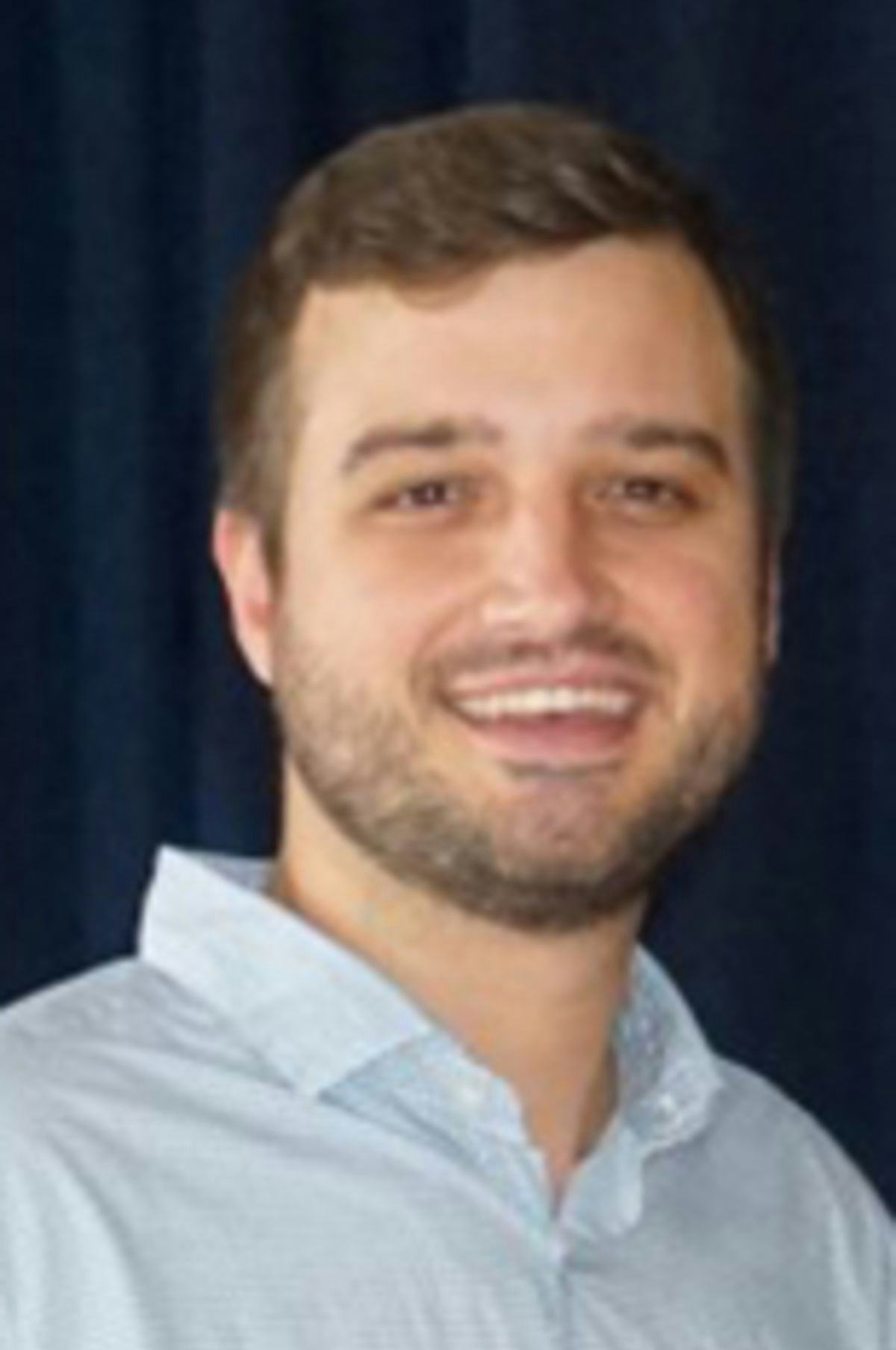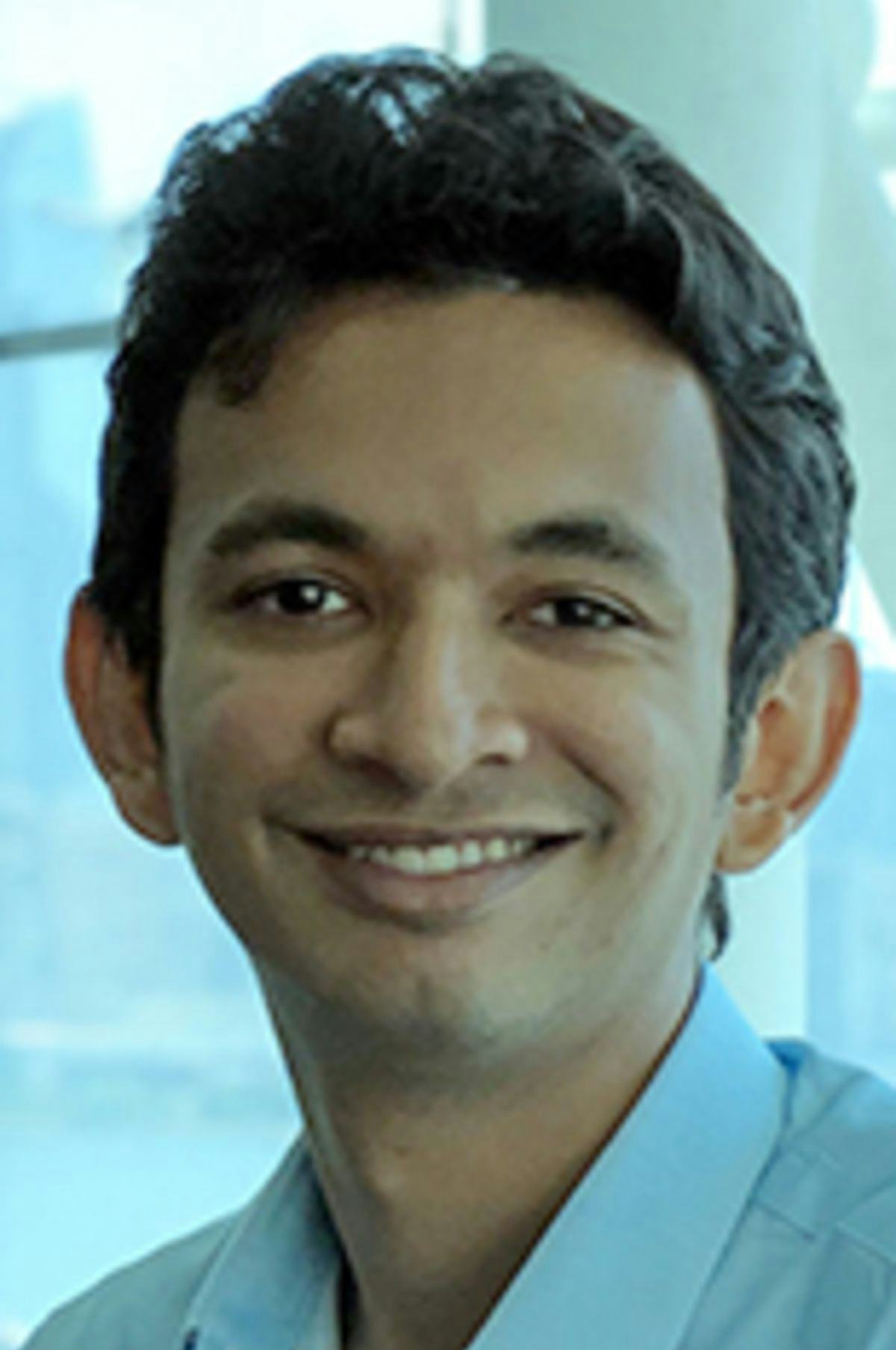'Every Year, They Told Me to Stop.' But at Stevens, Alumna Found She Didn't Have To
A Trailblazer's Passion for STEM Put Her on the Path to Become First Blind Financial Engineer
Shalini Menon M.S. '20 is not to be underestimated. Growing up in India, she was frequently told being blind would prevent her from taking the high-level math and science classes she enjoyed so much.
But the naysayers did little to dampen her passion for STEM subjects.
“Every year they told me to stop, and every year I just kept going,” Menon said.
That persistence led her to Stevens Institute of Technology, where she earned a master’s in Financial Engineering from the School of Business. As far as she knows, she’s the first blind person in the field, which meant there was no blueprint for how to make the discipline — a combination of mathematics, economics and computer programming — accessible to her.
“Financial engineering is fairly new, so I knew I needed a college that would be willing to work with me so we could figure it out together,” she said.
Making STEM accessible
Menon was uniquely suited for the challenge of rethinking curricula. Growing up, her mother would go through her textbooks in advance and prepare tactile versions — using household materials and craft supplies — of any visuals, to prepare Menon to picture complex concepts in her head while deciphering graphs and charts through touch.
She carried those same materials with her as an undergraduate at Amherst College, where she studied math and economics on a full scholarship. And she wasn’t the only one who found her crafty study guides helpful.
“I would take my tactile diagrams to tutor students, and it was like something clicked for them,” she said. "Crafting a model and building it with your hands really gets it into your head in a way that helps you learn."
It was an idea she continued to explore after graduating from Amherst and taking a job as a research assistant in a human computing lab at the University of Colorado Boulder. There, she worked alongside a team of A.I. researchers focused on developing technologies to enhance STEM learning for blind people.
"When you make things accessible for people with disabilities, there are lots of times where they actually become more accessible to people who don’t have disabilities,” she said.
The lab was Menon’s gateway into computer science, and financial engineering gave her the perfect opportunity to combine this newfound interest with her background in math and economics. She applied to the handful of graduate schools with programs in this cutting-edge discipline, but she wasn’t through with the doubters just yet.
“I got through to the interviews for other competitive schools, but in the final round they said things like, ‘We think you’d do better in a less scientific field, like management,’” she said.
A willing partner in Stevens
Rather than offer alternatives, Stevens offered Menon a full scholarship. She said the school gave her the education — and support — required to accept an offer from BMO Capital Markets in Chicago, where she recently started her career as a corporate investment banking analyst. The university's small size meant that she could get the individualized attention she needed. And technology, like the refreshable braille display she uses with her laptop, allowed her to keep pace and collaborate with her peers.
“If I did a code share with other students, they’d type something from their screen and it would pop up in my braille display,” she said. “I could see what they were doing and make changes and comments, so it facilitated this kind of group work that I really enjoyed at Stevens.”
For the gaps that technology couldn’t bridge, Menon had a team of supporters behind her at Stevens. As director of the Office of Disability Services, Phil Gehman played an instrumental role in helping faculty address accessibility issues within each course.
“The ODS aims to champion the social model of disability throughout our campus community that emphasizes how the attitudes and structures of society can be much more disabling than a disability itself, and an important part of that process is raising awareness that these barriers exist,” he said. “Shalini created a safe environment for others to ask questions and she generously provided information, and our campus benefited greatly from those contributions she was willing to provide.”
Stevens provided Menon with a teaching assistant for each course — a student who had already taken the class and could continuously collaborate with Menon throughout the semester. In her first semester, she was paired with Dhananjay Salgaocar M.S. ’19, who said working with her challenged his own understanding of the course material and better prepared him for his consulting career at EY.
“You need to go deeper into the lessons to put it across in a way that worked for her,” he said. “I had to get creative, and that helped me think differently about the subject matter.”
Both he and Gehman took their cues from Menon, whom Salgaocar said pursued her education with a relentlessness that makes her perfectly suited for the constant upskilling demanded of a career in financial engineering. Menon’s experience and determination ultimately guided everyone through the trial-and-error process of figuring out new ways to access these courses.
“It was always about finding teachers and classes that would actually accept me, because I was told ‘no’ many, many times,” she said. “Stevens understood how I learned, what kind of technologies would work best for me, and how to make things accessible. It really enriched my learning experience.”
FINANCIAL ENGINEERING HANLON FINANCIAL SYSTEMS CENTER School of Business




